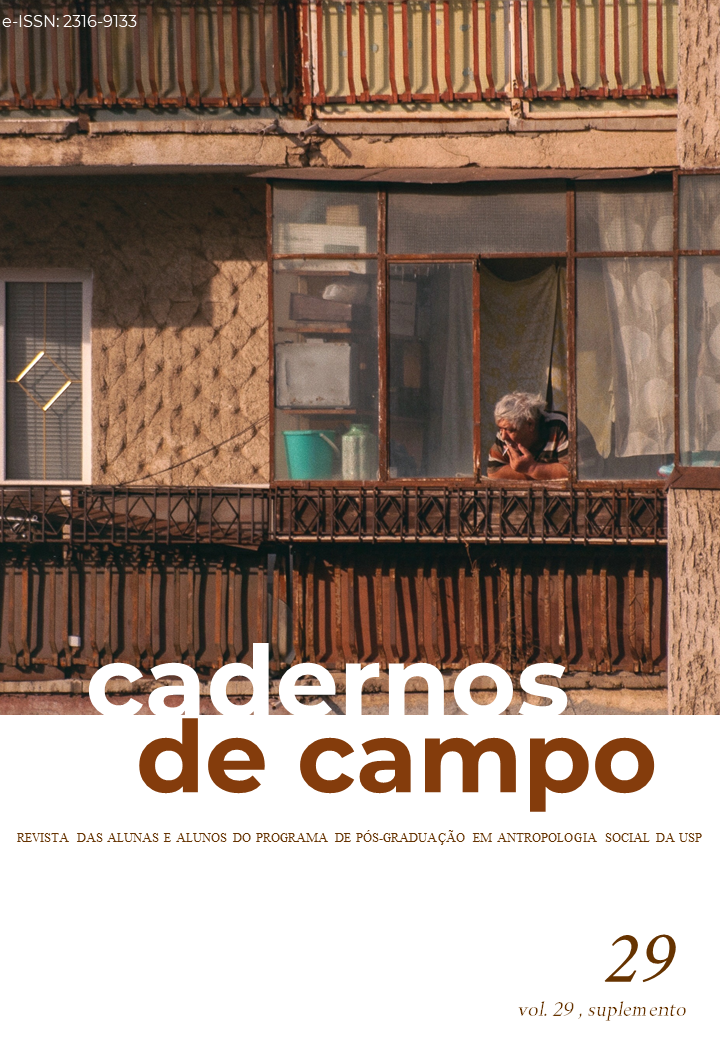Dalkurd FF
being an Uppsala club during a pandemic
DOI:
https://doi.org/10.11606/issn.2316-9133.v29isuplp105-113Keywords:
Sweden, Kurdish diaspora, COVID-19, footballAbstract
As the whole world struggles with the appearance of a large-scale pandemic, individuals and institutions begin to cope with the perspective of both short and long-term changes to their plans. What had been planned out by many during January and February of 2020, no longer became feasible already during the following months. Thus, with the impossibility of knowing for how long this situation will persist, both individuals and institutions have changed their plans with a focus on when the situation will reverse to a degree of normalcy. This article aims to briefly understand and analyses the strategies centered around a Swedish football club founded by Kurdish individuals regarded to the consequences of the coronavirus crisis in the country. Both fans and employees at the club have changed their strategies regarding the first year they would be playing in their new hometown of Uppsala. The author will argue that, although, the crisis has changed their strategy and hampered their plans of becoming a local institution, it has not, in fact, changed their plans to be an integrated part of the city, but it has provided the club with newer opportunities to do so.
Downloads
References
ALINIA, Minoo; ELIASSI, Barzoo. (2014). “Temporal and generational impact on identity, home (land) and politics of belonging among the kurdish diaspora”. In: Nordic Journal of Migration Research. Vol. 4. n.2 p. 73-81. DOI: http://doi.org/10.2478/njmr-2014-0008
ANDERSSON, Törbjorn. (2009) Immigrant Teams in Sweden and the case of Assyriska FF. In: Soccer & Society. Vol. 10 n.3-4. pp. 398-417.
BARTH, Fredrik. (1969). Ethnic Groups and Boundaries: the social organization of cultural difference. Oslo: Oslo Universitetforlaget.
BEISNER, Niko; BROWNELL, Susan; CARTER, Thomas. (2017). The Anthropology of sport: bodies, borders, biopolitics. University of California Press. 336 p.
BERGGREN, Henrik; TRÄDGÅRDH, Lars. (2006). Är Svensken Människa? gemenskap och oberoende i det moderna sverige. Stockholm: Norstedt.
BOREVI, Karin. (2002). Välfärdsstaten i det mångkulturella samhället. PhD dissertation in political science. Uppsala: Uppsala University.
BRUINESSEN, Martin Van. (1999). “Migrations, mobilizations, communications and the globalization of the Kurdish question”. Working Paper, No.14, Islamic Area Studies Project. Tokyo.
DIAS, Tiago Duarte. (2020). “Pertencimento étnico e compromissos morais: curdos em diáspora na Dinamarca e os direitos humanos no Curdistão”. Antropolítica, vol.48. Niterói: UFF, p.192-217
DURKHEIM, Émile. (1974). “The Determination of Moral Facts”. In: DURKHEIM, Émile. Sociology and Philosophy. New York: Routledge. p. 35-64.
GAMMELSÆTER, Hallgeir. (2009). “The organization of professional football in Scandinavia”. Soccer and Society. Vol.10, n.3-4. pp.305-323.
GUEDES, Simoni. (1998). O Brasil no campo de futebol: estudos antropológios sobre os significados do futebol brasileiro. Niterói: EDUFF. 133 pp.
HERD, Katarzyna. (2018). “Constructing football through magic: an ethnographic study of football supporters”. Soccer & Society. Vol. 18, n. 7: p. 1045-1047. DOI: https://www.tandfonline.com/doi/full/10.1080/14660970.2015.1133415
KHAYATI, Khalid; DAHLSTEDT, Magnus. (2014). “Diaspora formation among Kurds in Sweden: transborder citizenships and politics of belonging”. In: Nordic Journal of Migration Research. Vol.4, n.2: p. 57-64. DOI: https://doi.org/10.2478/njmr-2014-0010
PATERLINI, Marta. (2020). “‘Closing borders is ridiculous’: the epidemiologist behind Sweden’s controversial coronavirus strategy”. In: Nature. DOI: https://www.doi.org/10.1038/d41586-020-01098-x
ROMMEL, Carl. (2011). Playing with difference: football as performative space for division among Suryoye immigrants in Sweden. In: Soccer & Society, vol.12, n.6: p. 850-864. DOI: https://doi.org/10.1080/14660970.2011.609684
Downloads
Published
Issue
Section
License
I authorize Cadernos de Campo Journal of Anthropology to publish the work of my authorship/responsibility, as well as I take responsibility for the use of images, if accepted for publication.
I agree with this statement as an absolute expression of truth. On my behalf and on behalf of eventual co-authors I also take full responsibility for the material presented.
I attest to the unpublished nature of the work submitted





